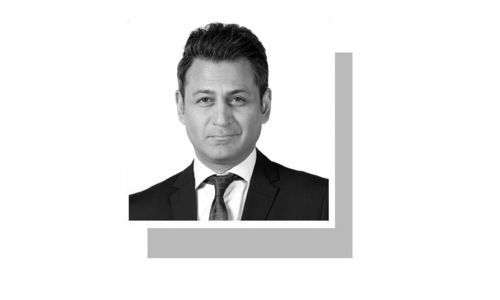WE see a big puzzle. Our establishment, its allies and even many middle-class persons, always in search of instant solutions for misrule, zealously push unproven, even failed ideas, but oppose proven good governance ones. The most flawed such idea is that our misrule is due to the parliamentary system and a simple move to presidentialism will quickly give good governance.
Major policy decisions must be based on solid proof. Since we already have a parliamentary system, the burden of providing such proof lies with the presidency fans. But they typically give top-of-the-head armchair analysis rather than proof. Globally, there is endless debate among political scientists about the merits of both, without a clear consensus or strong empirical proof. Yet almost all the best governed and developed states (all in North America, Western Europe, East Asia and Down Under) have a parliamentary system. Regionally too, most Saarc states with the highest per capita incomes have it. Even if their outcomes aren’t due to it, this clearly shows that a parliamentary system doesn’t hinder good governance. Turkey is one of the very few states to switch to a presidential system a few years back. But it is doing worse economically since then.
Read: The truth about the all-powerful presidents in Pakistan
With global proof to support presidentialism absent, we look at our own history. We have had long periods of it but mostly under autocracy. While these eras were disastrous despite their misleading higher growth rates fuelled by short-term US aid, the blame accrues more to autocracy than presidentialism. Our only civilian presidency was for only about 18 months during 1972-73 under Z.A. Bhutto, which is too short a period to form strong opinions either way. So our own history provides no support for presidentialism either.
In the absence of empirical proof, national or global, we are left with theoretical logic, which obviously is insufficient basis for huge national policy decisions. But even such logic in favour of presidentialism is very weak. It is argued that Pakistani parties, and thus parliament too, are controlled by corrupt politicians who do not let good people rise to the top. The hope is that if people elect the highest political office directly, they will elect honest, capable people. Presidents, in turn, will appoint ministers from outside parliament who will thus be very capable and honest too. Everyone will then live happily thereafter under wise rulers, as in children’s bedtime fairy tales.
Parliament is seen as a cesspool of everything wrong.
So parliament for some odd reason is seen as a cesspool of everything wrong in the world and bypassing it and direct elections as a great panacea. But if this was so, why is parliament such a bad place, which after all is directly elected too? Going by the direct election logic, all our parliamentarians should perform very well. But obviously they don’t and this clearly shows that the theoretical logic in favour of direct elections is spurious.
Read: The latest debate on the presidential system is as useless as the many ones before
If Pakistanis were really waiting eagerly to elect angels directly, why don’t they elect them as independents in parliamentary polls? Surely winning individual parliamentary seats in a small area should be much easier for honest persons with limited funds than national presidential polls. But few honest independents win even parliamentary seats.
The reasons for this are well-known: the role of powerful families, kinship-based politics and patronage distribution. Since these features will not disappear just by selecting a new electoral system, presidential polls will also be won by traditional politicians, the heads of our major parties who currently become prime minister, who can utilise these perverse features of our politics effectively. The illusion of the superiority of unelected technocrats is apparent by the poor performance of unelected advisers and special assistants in successive regimes, especially PTI.
Read more: Insiders say Shahzad Akbar asked to resign over unsatisfactory performance
Beyond lack of proof, there is also its political unlikelihood as a two-thirds parliamentary majority in its support is unlikely to be there even in the future. Even if it were, courts may strike down such a law. In 2015, the Supreme Court had ruled that the parliamentary system was a salient constitutional clause. So the only chance is if a dictator takes over and bulldozes constitutional clauses via a handpicked rubber-stamp assembly, like Zia’s and Musharraf’s. But ironically, all three of our autocratic eras too, after failed presidential experiments, themselves brought back parliamentary politics.
Read more: ‘Los presidentes’
Why does the idea of presidential system find such traction in powerful quarters when it lacks both evidential base and political feasibility? One can only surmise that the real reason is not good governance but controlled governance that suits the deep state.
The writer is a freelance political economist with a PhD from the University of California, Berkeley.
Twitter: @NiazMurtaza2
Published in Dawn, January 25th, 2022















































